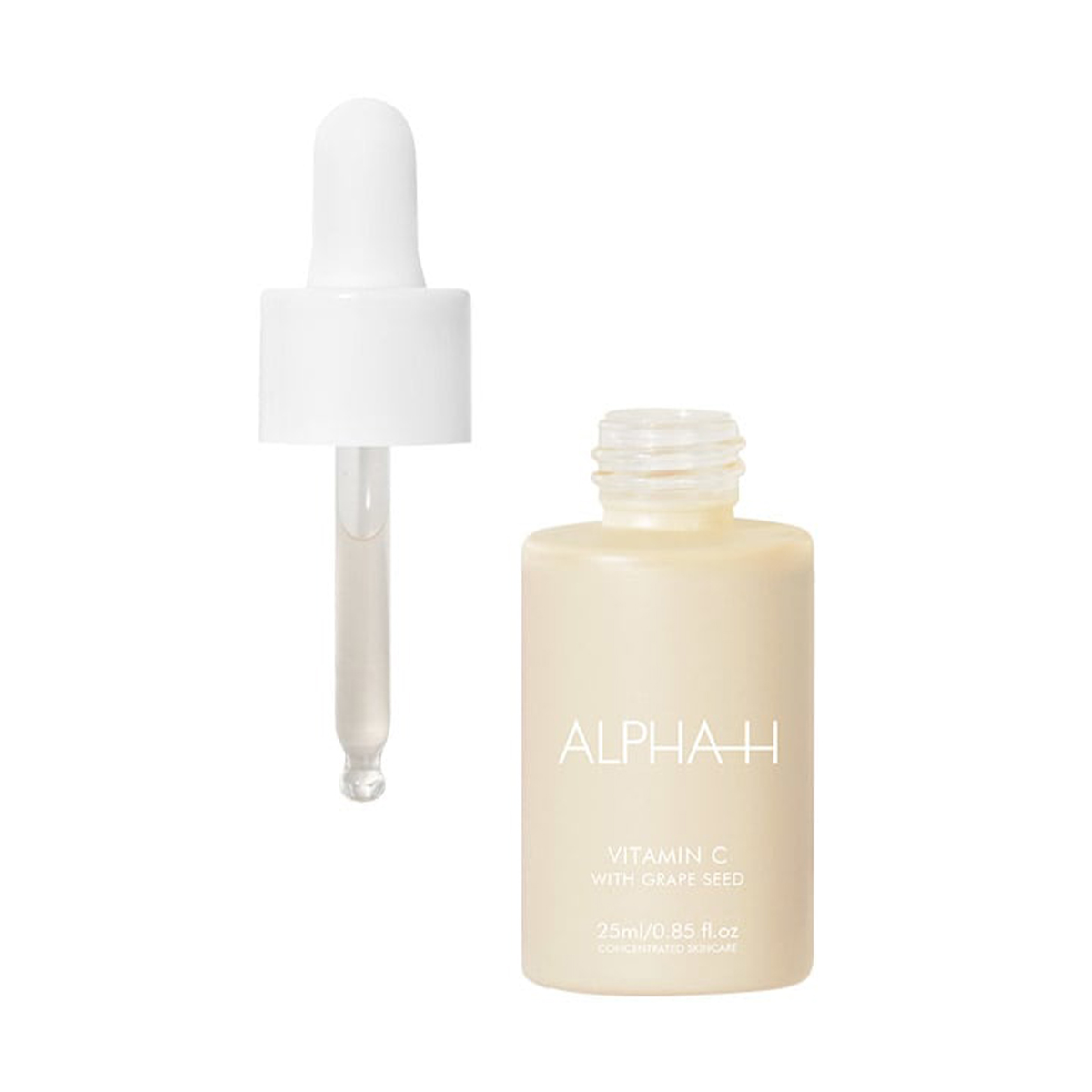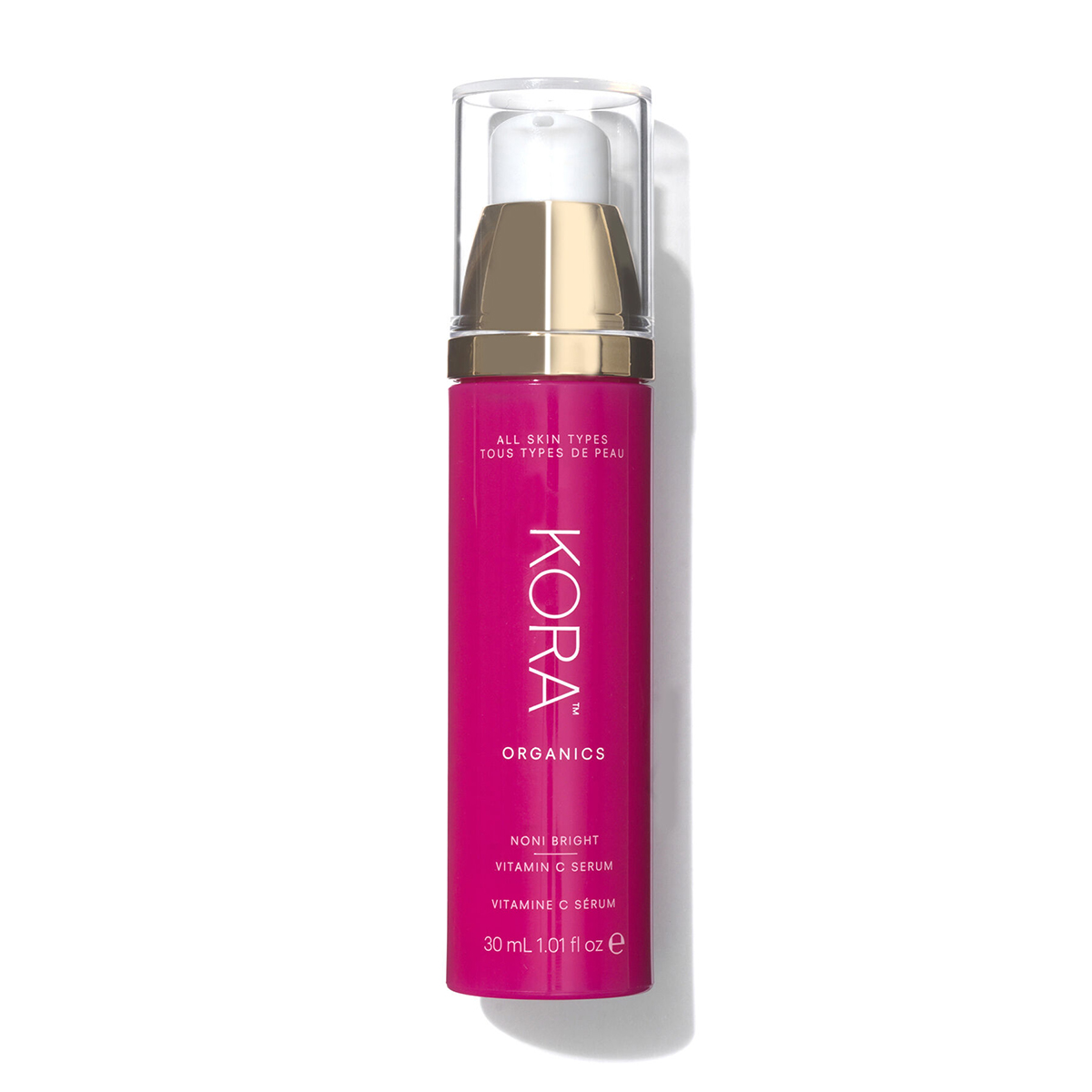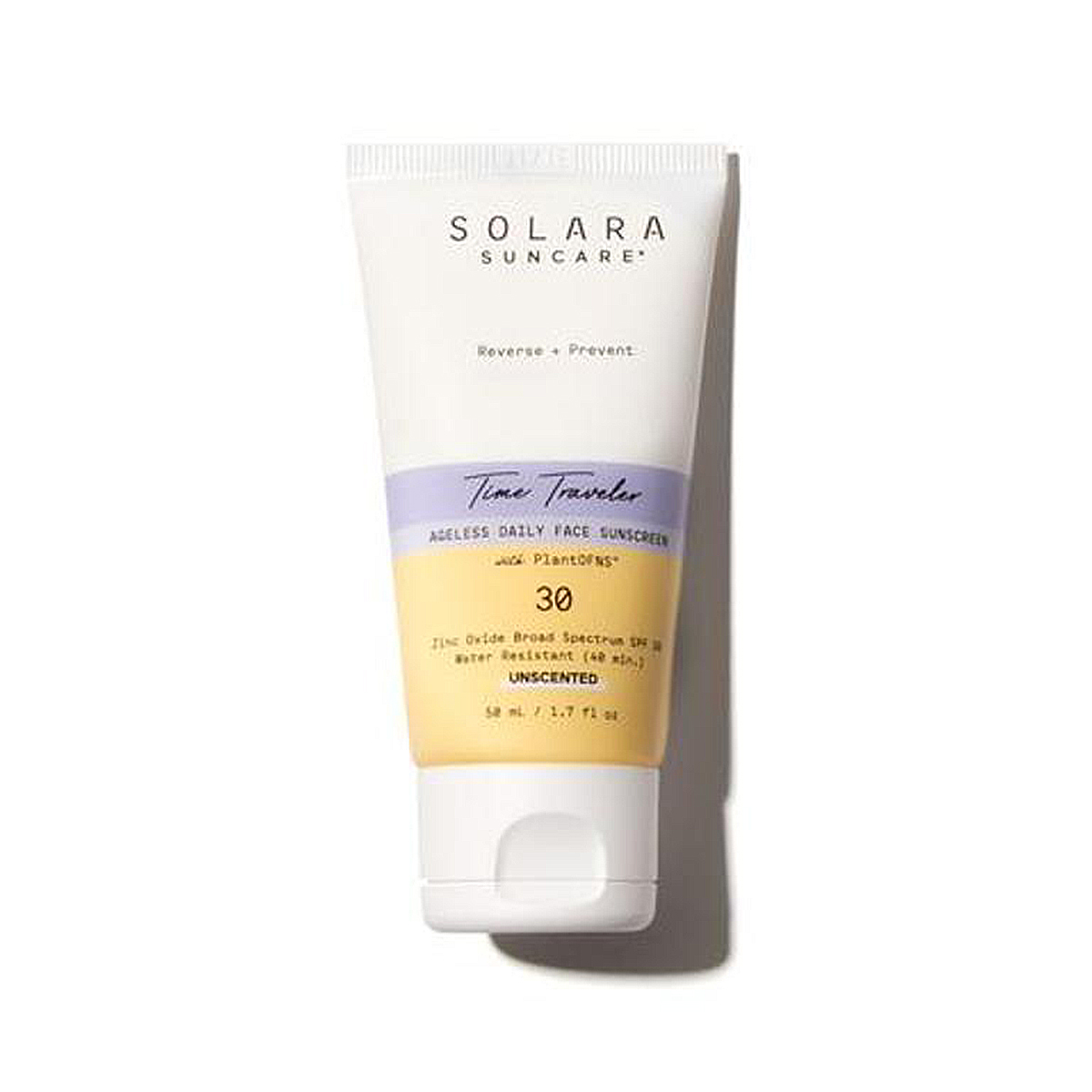My Screen Time Is Super High, so I Found Out If Blue-Light Skincare Is a Gimmick

Over the past year or so, I've somehow managed to reduce my daily screen time from roughly five-ish hours per day to under two. Of course, this fluctuates depending on the week and what's going on, but I'd be lying if I said less phone time and more IRL time haven't made a significant impact in my life. I've been sleeping better (simply replacing my phone with a good book at bedtime has been game-changing), I have less anxiety ("out of sight, out of mind" bodes well regarding FOMO, jealously stalking exes, comparing your life or looks to others… the list goes on and on), and my perenially red, itchy, and twitchy eyes have become a thing of the past—no eye drops necessary. Of course, I decided to curb my phone time for sanity and self-preservation's sake, and due to the nature of my job, I am crunching letters on my keyboard for the majority of the day. But I'd be lying (or maybe just blind) if I said I hadn't noticed some visible differences in my skin as well.
You'd pretty much have to be living under a rock not to have heard about blue light in recent years. In direct correlation with our rising screen time has come more dialogue about the potentially damaging rays of light emitting this very second from whatever screen you're staring at. Blue-light glasses have gained mass popularity, most devices have settings to target and filter it out, and now, even the skincare industry (and all of its marketing companies) has taken to warning us about and preventing the effects of blue-light damage.

Of course, being a beauty editor, I approach every kind of marketing ploy and claim with skepticism (it's physically impossible not to become jaded by the industry when you receive 500 emails a day telling you about the "best new product" of the day, week, month, or year.) So once I started seeing blue-light skincare making its way into email subject lines just as often as other buzzy, overplayed themes, I couldn't help but ask myself, Is blue-light skincare just the latest gimmick? While it does make logical sense that the light coming from our screens would have some kind of palpable effect on the skin inches away from it, I was still unsure and felt like I needed some expert insight on the subject.
Below, I'm sharing some of the very best (and effective) blue light–protective skincare products and everything else I learned from two renowned dermatologists. Keep scrolling for everything I wish I had known sooner.
What is blue light?

According to New York City–based dermatologist Joshua Zeichner, MD, blue light—also known as high-energy visible light—represents the light found specifically within the blue portion of the visible-light spectrum. Its wavelength is slightly longer than ultraviolet light (UV, UVB, and UVA), and it has been shown to penetrate deeper into the skin than ultraviolet does. (Eep!) The good news? While blue-light exposure has been associated with visible signs of aging like dark spots, pigmentation, and the breakdown of collagen, it is not associated with the development of skin cancers (unlike ultraviolet light).
It's also important to note that while LED lightbulbs and electronic devices carry the worst rep in terms of blue-light emission, sunlight is actually the main source of blue light. Sorry to break it to you, but simply powering down more frequently can help, but it won't negate your exposure completely. Interestingly, Zeichner tells me that the powers at be don't actually know how much blue-light exposure is too much exposure, but just like other types of light, even a low exposure level will quickly and easily add up over our lifetimes. Therefore, a combination of prevention and awareness is definitely key.
Luckily, there are specific types of products, treatments, and practices that can help protect your skin from blue light, hence lessening its fast-forward aging effect on the skin—keep scrolling.
The best skincare products to protect against blue light:
Antioxidants
Here's an important shopping hack: A product doesn't necessarily have to be labeled or marketed as blue-light protection to help protect you. In fact, Zeichner tells us that pretty much any product utilizing high-quality antioxidants will do the trick. Since blue light causes free radical damage in the skin (think brown spots, pigmentation, etc.), applying your daily dose of antioxidants can help minimize the visible impact.
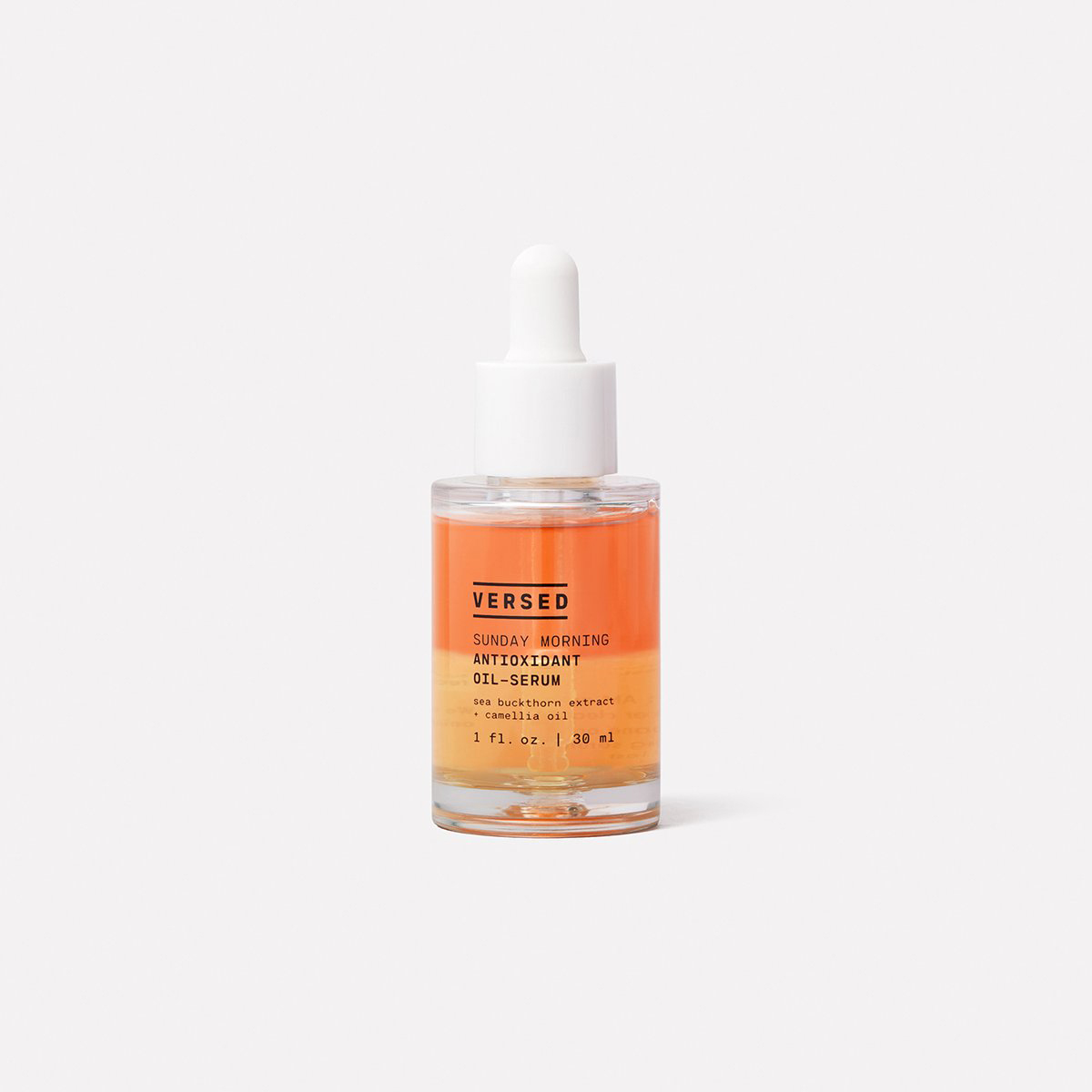
The buzz has been absolutely lit regarding this new oil-serum hybrid from clean-skincare brand Versed. It provides the perfect ratio of hydration and treatment thanks to a strategically balanced lineup of ingredients such as sea buckthorn extract, camellia oil, vitamin E, chamomile flower extract, and jojoba oil.
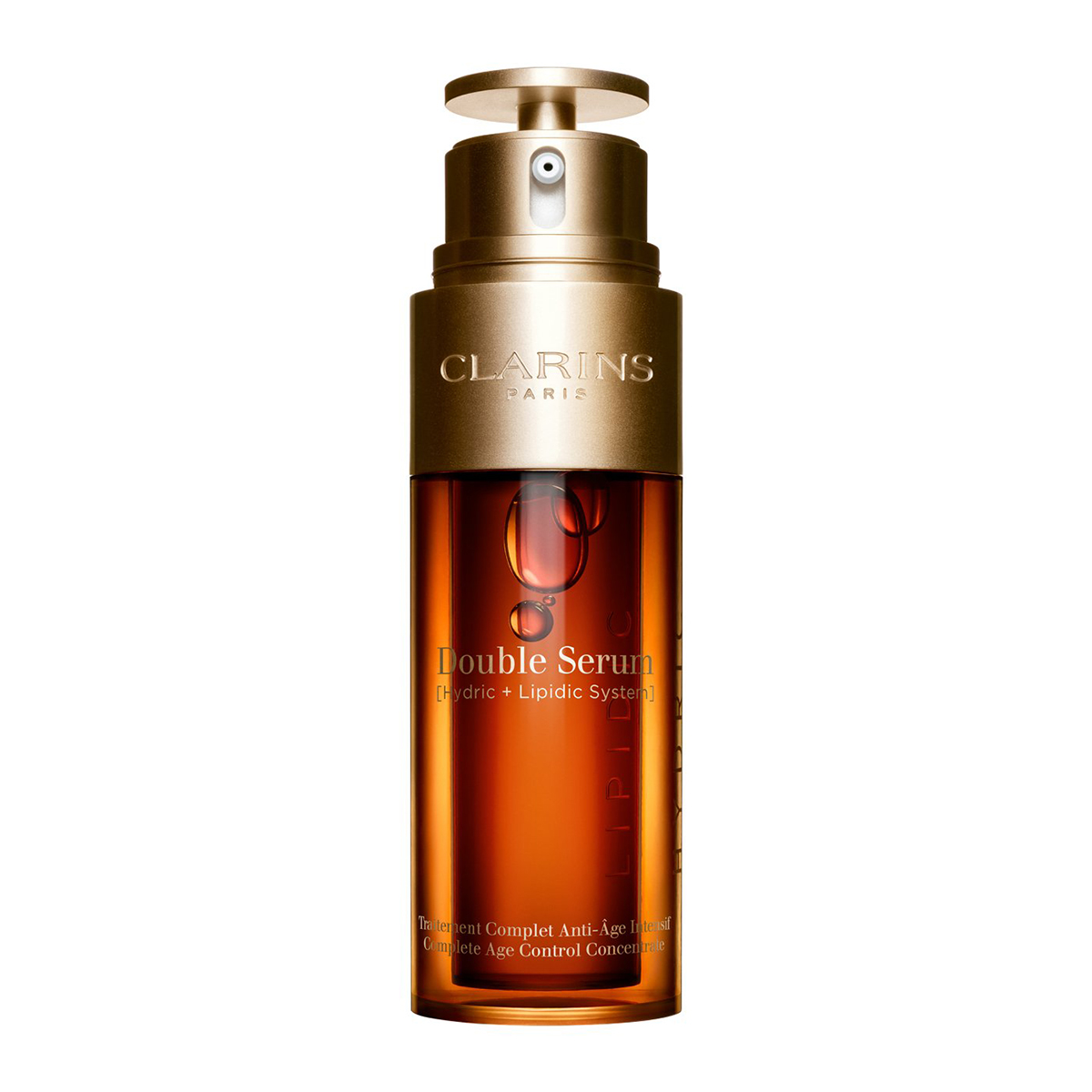
Zeichner explains that this lush serum from Clarins contains a special blend of botanical extracts that have a soothing and brightening effect on the skin. "The formula contains turmeric, which has long been used in skincare for its anti-inflammatory and antioxidant benefits," he continues.
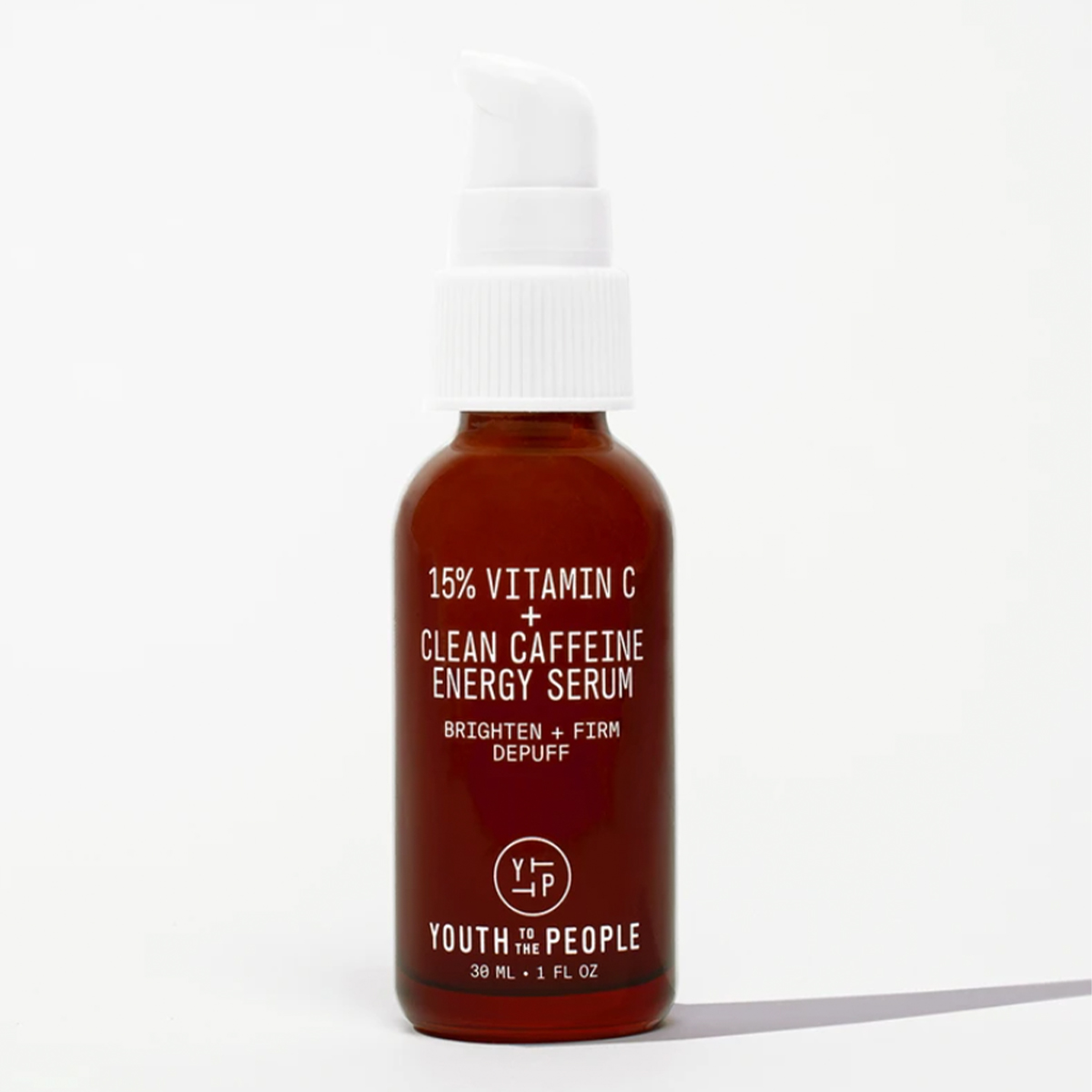
Brand-new from Youth to the People, this caffeinated serum is the ultimate vitamin C drip for dull, lackluster skin. Its roster is impressive, complete with a 15% vitamin C complex and antioxidant powerhouses such as passion fruit, dragon fruit, yerba mate, and guayusa—all of which will help brighten, firm, reduce pigmentation, depuff, contour, and scavenge potentially damaging free radicals.
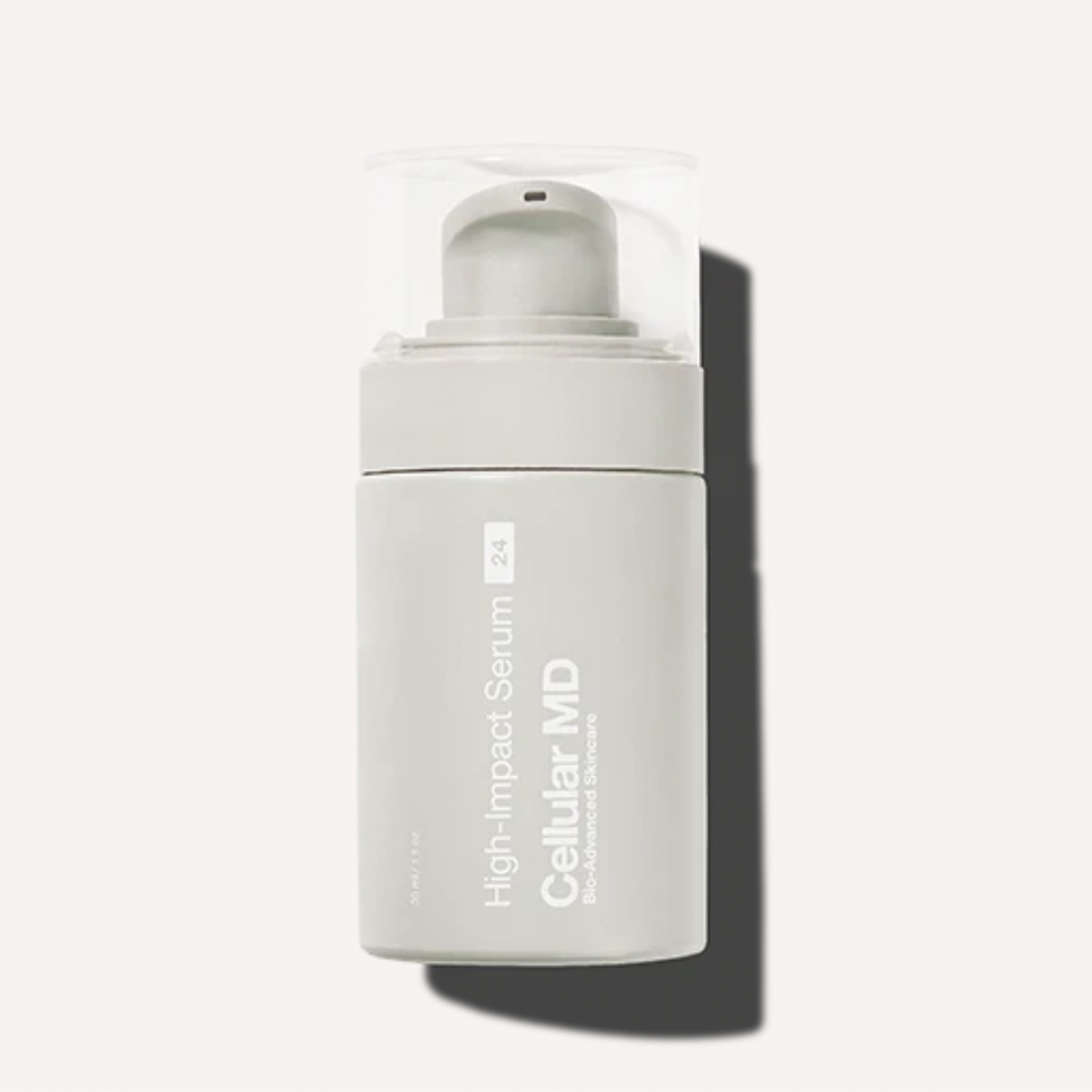
"Cellular MD's entire product line works to repair, protect, and future-proof the skin," says Beverly Hills–based dermatologist Ronald Moy, MD, FAAD. "The line combines three primary ingredients: Circadian Repair Proteins (DNA Repair Enzymes), barley-derived growth factors, and niacinamide. These powerful activators modify skin behavior on a cellular level and heighten the body’s effectiveness at restoring natural regeneration and repair mechanisms to reverse skin damage from blue light, sun exposure, stress, poor air quality, and everyday aging."
In addition to the aforementioned ingredients, this super serum from the brand contains antioxidant citric acid to help repair prior sun and environmental damage by reducing dark spots and fine lines while improving skin texture, elasticity, tightness, and pigmentation.
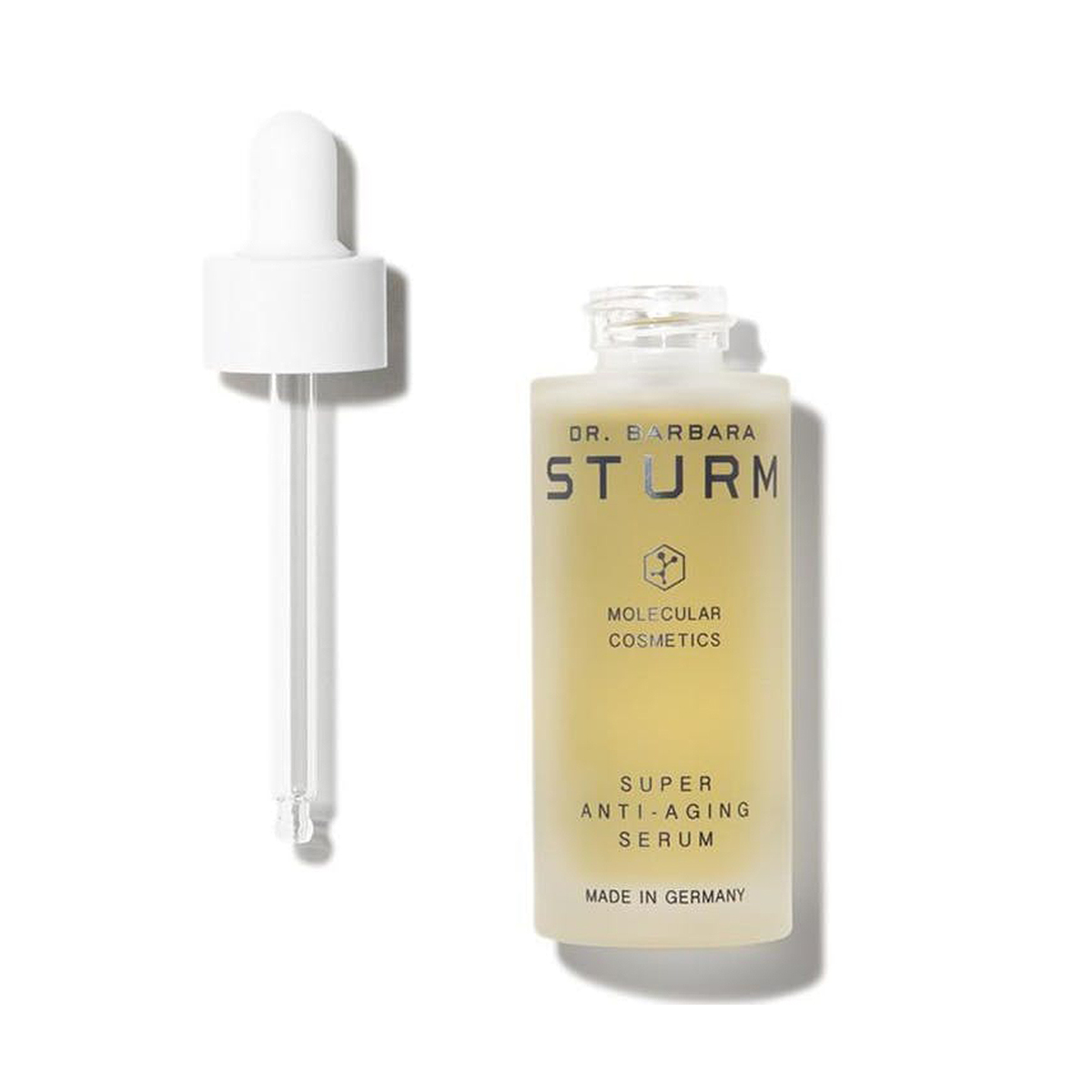
Purslane, Dr. Barbara Sturm's hero ingredient, is regarded as one of the most potent sources of antioxidants in the world. Therefore, it's not surprising it joins ingredients like skullcap (another antioxidant) and hyaluronic acid as the star of the show in this power-packed anti-aging serum.
Mineral (Zinc Oxide–Infused) Sunscreen
"Chemical sunscreens can filter UV light, but they have no effect on blue light," explains Zeichner. "Instead, stick to mineral blockers like zinc oxide, which form a physical shield over the skin and may help block blue light's penetration."
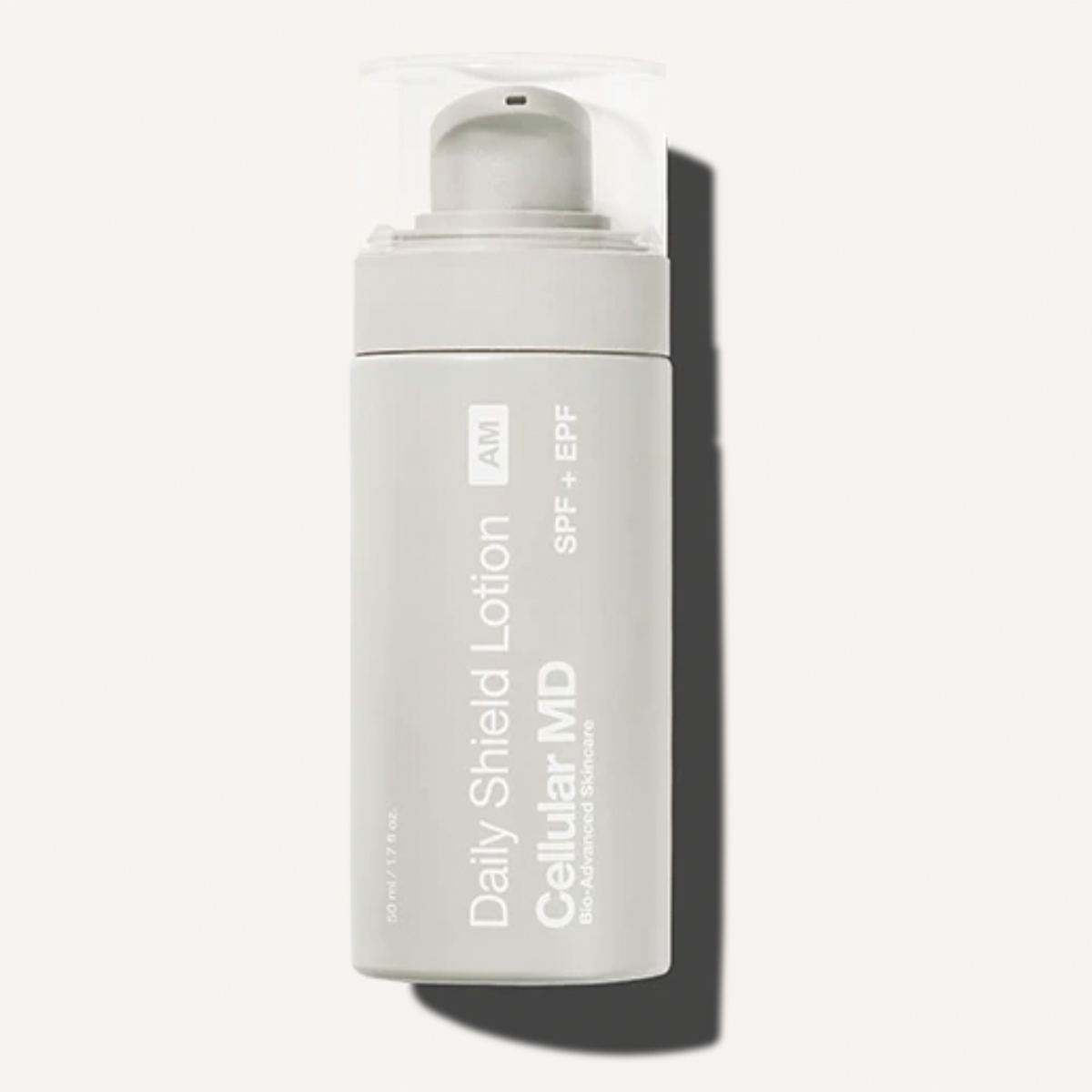
"Blue light–protective skincare such as the Daily Shield Lotion SPF & EPF from Cellular MD is great for anyone spending hours in front of their computers, cell phones, or out in the sun," notes Moy. It absorbs quickly, it doesn't leave a greasy finish, and it functions as both a daily moisturizer and an easy-to-wear SPF teeming with antioxidants and the brand's special Circadian Repair Proteins, which will help correct past damage.
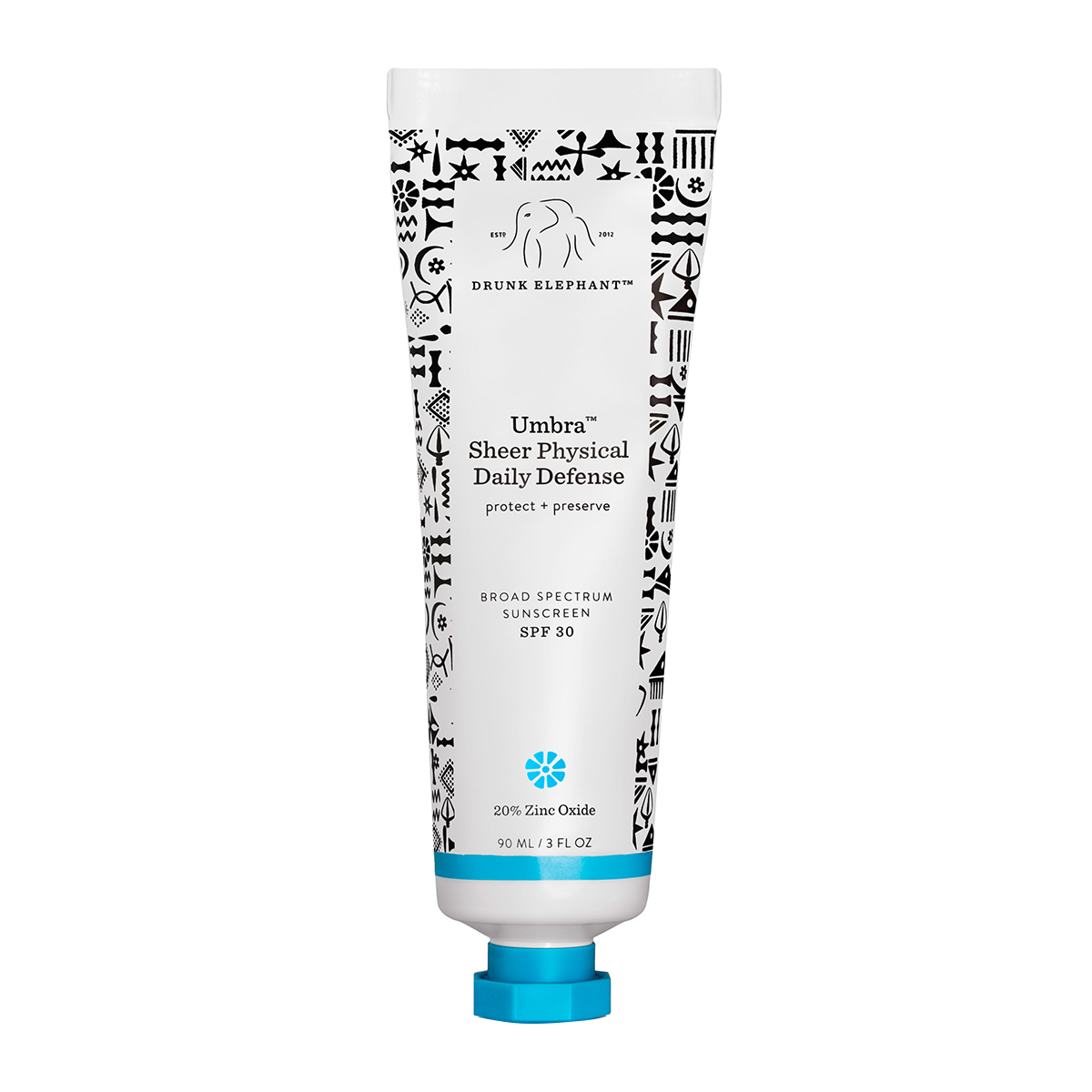
We love and appreciate that this best-selling physical sunscreen from Drunk Elephant not only protects our complexion in real time from harmful light rays but also corrects, defends, and neutralizes damage thanks to an epic roster of sunflower-shoot extract, astaxanthin-rich algae extract, and lush raspberry-seed oil.
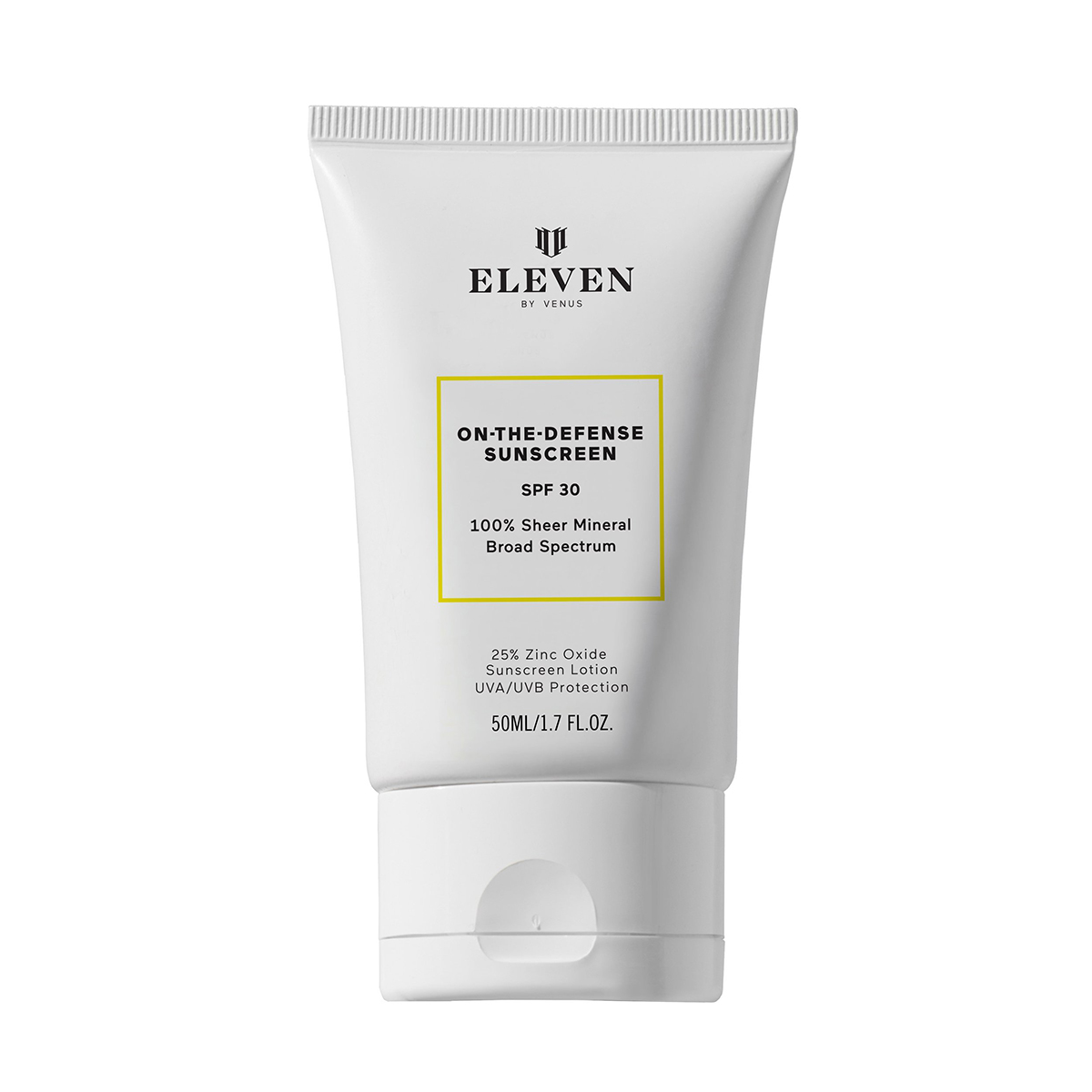
If you're worried about ashiness or unflattering white casts with physical blockers, we can't recommend this special formula from Venus Williams enough. It's sheer and dermatologist approved and has the perfect semi-matte finish that will actually stay put.
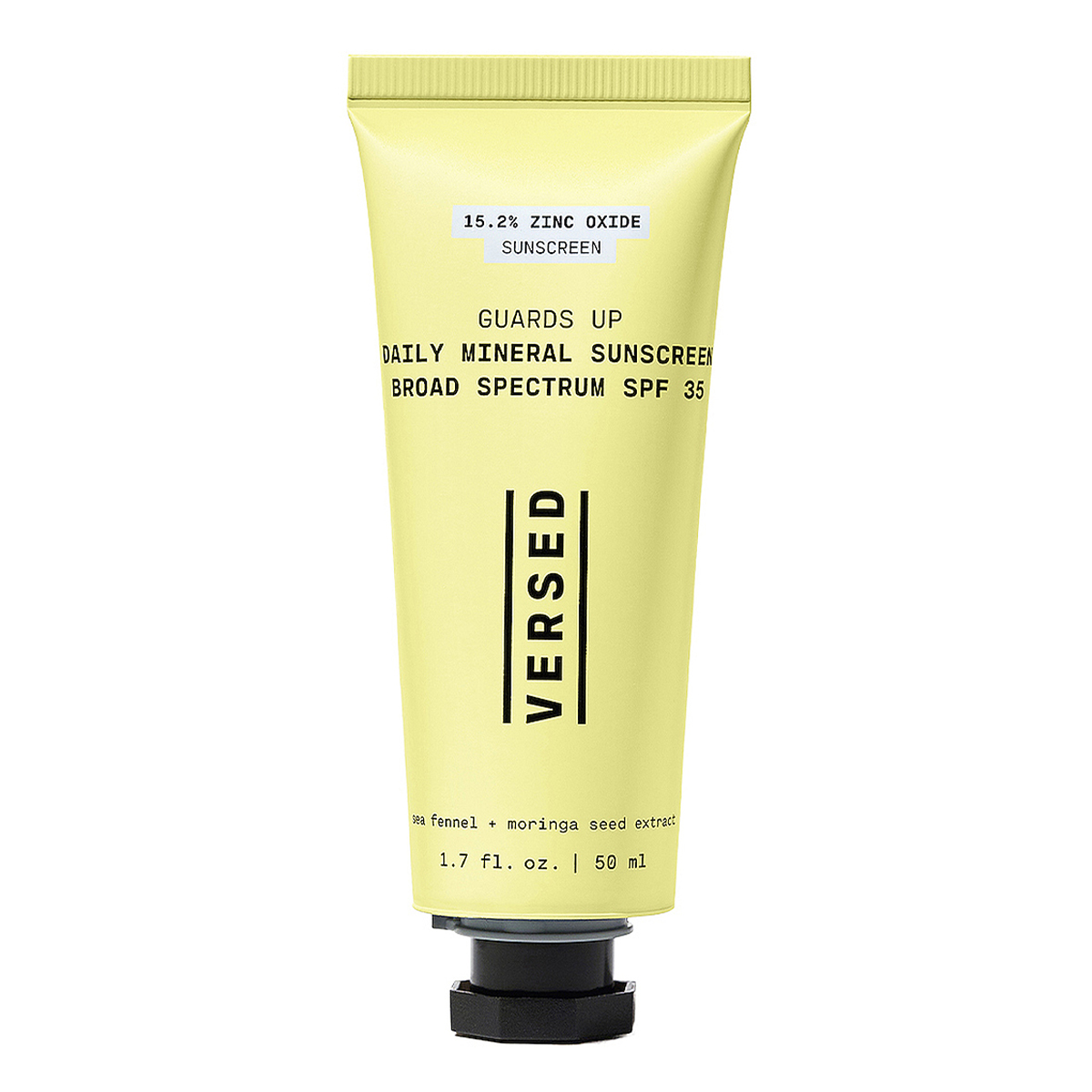
It's hard to create a mineral sunscreen that melts like Harry Potter's invisibility cloak onto the skin, but this nontoxic option from Versed accomplishes just that. Additionally, it's lightweight and oil-free (no breakouts here!) and offers three-way protection against pollution, blue light, and the sun.
Restorative Skincare Products
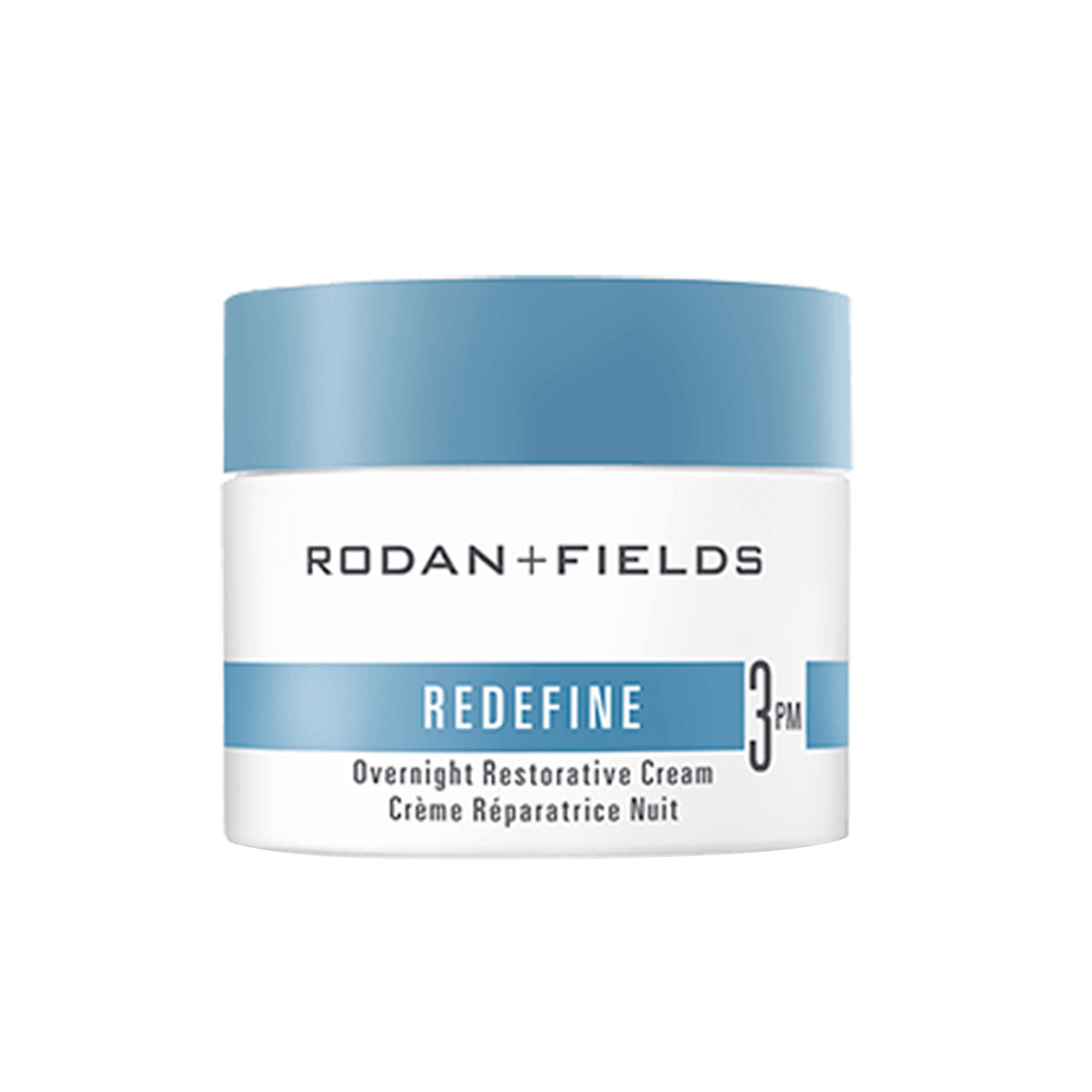
A top recommendation from Zeichner, this restorative face cream helps strengthen the skin with bakuchiol (nature's version of retinol) to stimulate collagen and minimize the appearance of lines. Additionally, peptides and niacinamide help calm inflammation and can even out skin tone.
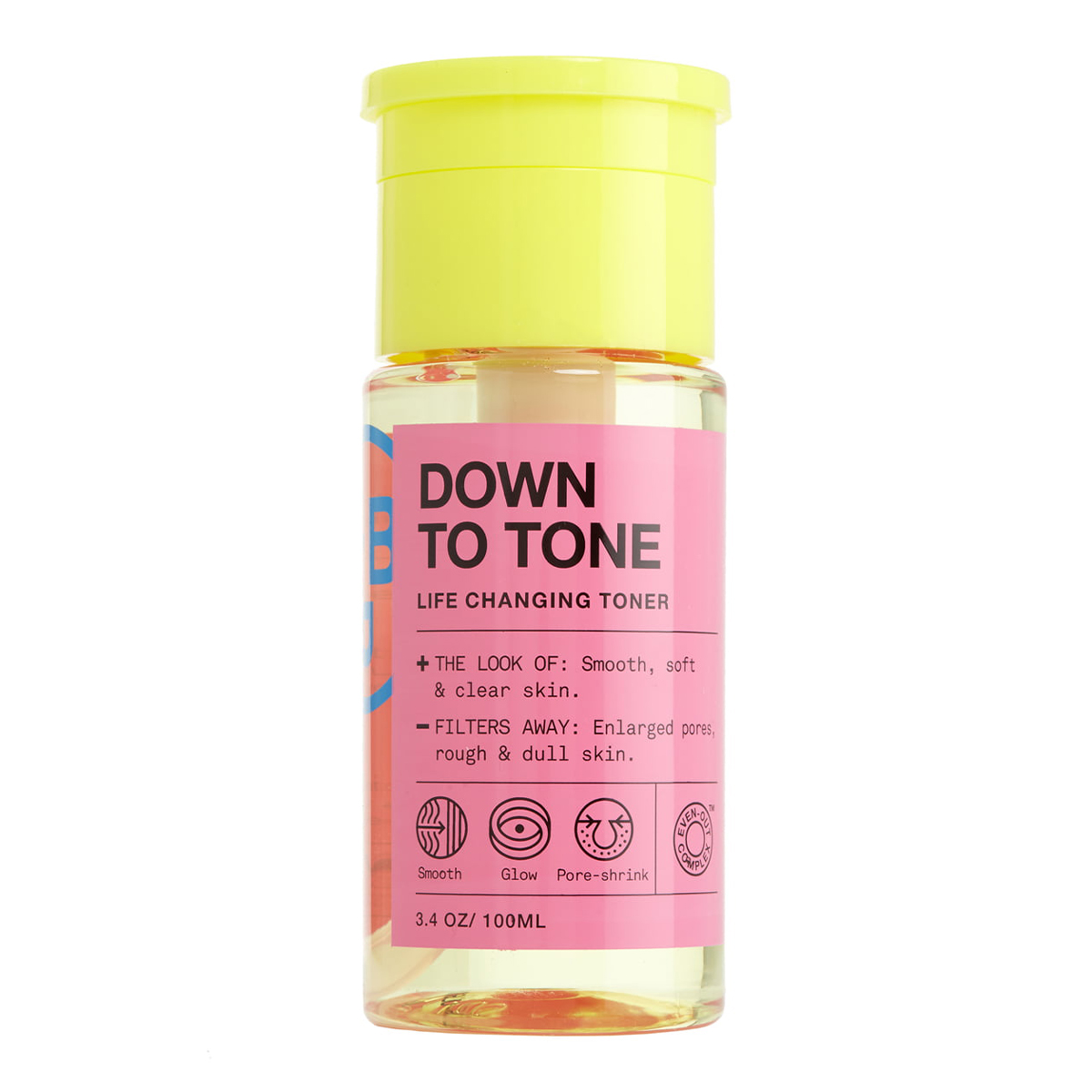
"Most people think of toners as products used to remove dirt and oil from the skin. However, they're really designed to deposit high-quality actives in a light, liquid formula," Zeichner reveals. "This toner uses a unique blend of hydroxy acids, including gluconolactone, a polyhydroxy acid that offers ultra-gentle exfoliation along with hydrating benefits."
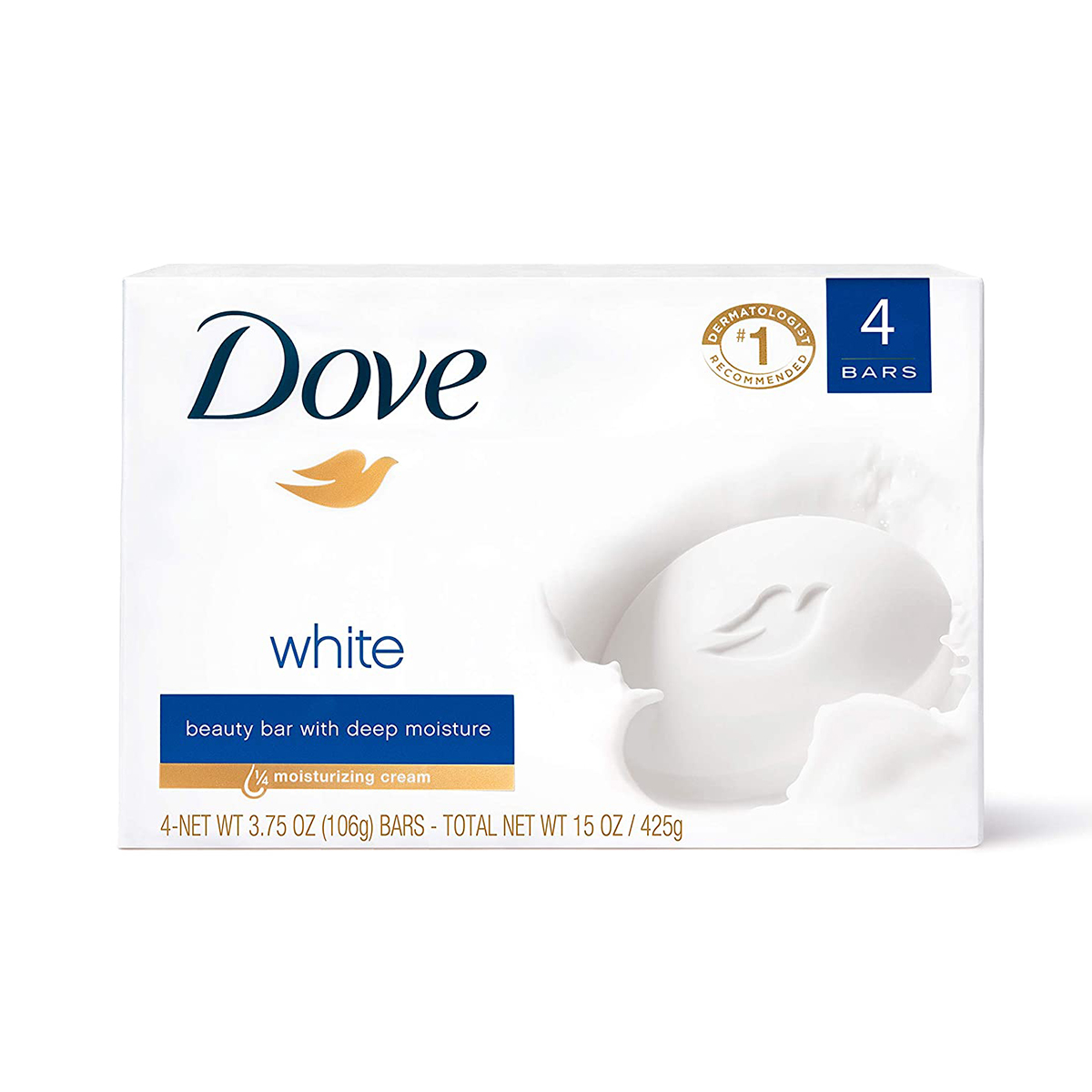
Contrary to popular belief, Zeichner confirms that we don't have to spend an arm, leg, and entire paycheck in order to get good products. In fact, he says nothing beats the super-basic beauty of Dove's forever-iconic Beauty Bar. "It doesn't compromise the integrity of the skin barrier," he explains. "And the healthier your skin barrier, the better it can protect itself from potentially damaging environmental exposures like blue light."
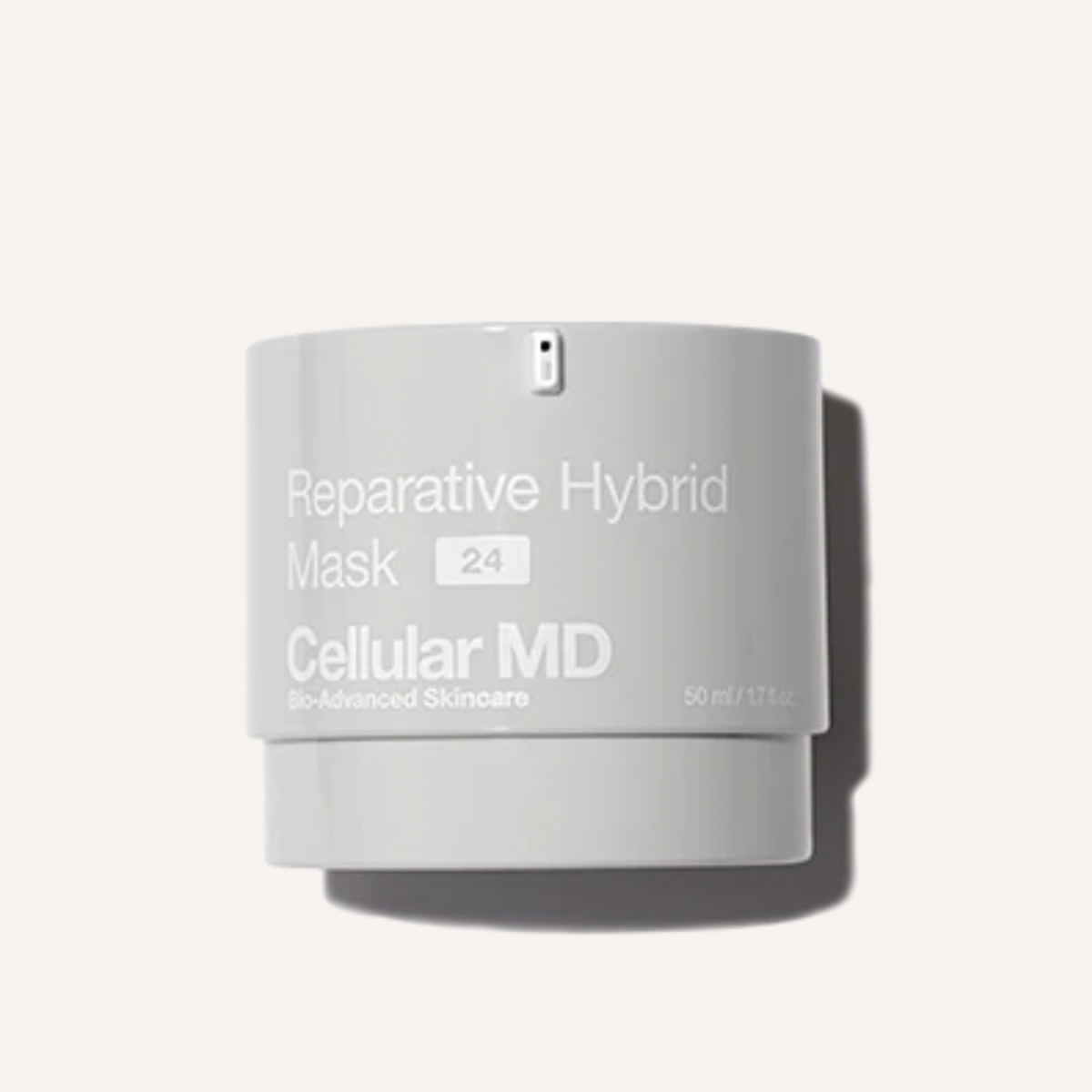
Moy explains that this Reparative Hybrid Mask from Cellular MD can repair the DNA damage caused by computers and cellphones. One part mask, one part moisturizer, it instantly gifts skin with a potent dose of moisture, restores uneven skin texture, and minimizes fine and stubborn lines (even tech neck). The megawatt melding of Circadian Repair Proteins with vitamins A and C helps repair that inevitable damage from the sun and environment.
Treatments & other helpful lifestyle adjustments:
Laser and/or micro-needling treatments: According to Zeichner, in-office treatments like lasers may be especially helpful when it comes to repairing and improving damage from blue light and the sun's other harmful rays—think the simultaneous improvements in tone, texture, fine lines, and wrinkles. "Lasers like Fraxel, Clear + Brilliant, or even treatments like micro-needling, can offer skin-rejuvenating benefits," he confirms.
Supplements to help rebalance your circadian rhythm: "Blue-light exposure impairs our natural circadian rhythm, which is crucial for the body to naturally repair DNA damage we accumulate while we're awake," Moy explains. "Cellular MD's Sol and Nox oral supplements contain nicotinamide and Polypodium I to help protect against blue light and repair the DNA damage it may cause in the skin."
Blue-light glass and/or screen filters. No, they're not skincare products per se, but both Zeichner and Moy agree that day-to-day lifestyle choices like unplugging more, holding our screens further away from our faces, wearing blue light–shielding glasses, and opting to turn on the blue-light screen filters most devices offer can definitely help reduce the accumulation of skin damage caused by blue light.
Up next, Finding the Perfect Zinc Oxide Sunscreen Is Hard, But We Found 10

Erin has been writing a mix of beauty and wellness content for Who What Wear for over five years. Prior to that, she spent two and half years writing for Byrdie. She now calls Santa Monica home but grew up in Minnetonka, Minnesota, and studied writing, rhetoric, and communication at University of Wisconsin, La Crosse. She studied abroad in Galway, Ireland, and spent a summer in L.A. interning with the Byrdie and Who What Wear family. After graduating from UW, she spent one year in San Francisco, where she worked as a writer for Pottery Barn Kids and PBteen before moving down to L.A. to begin her career as a beauty editor.
